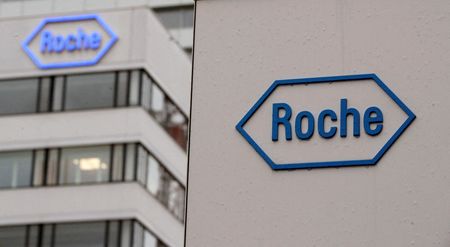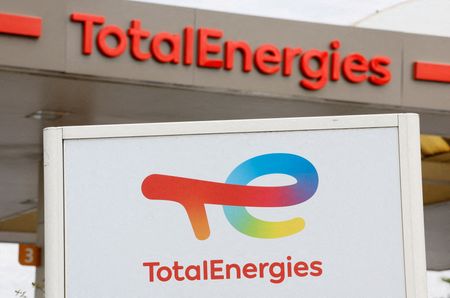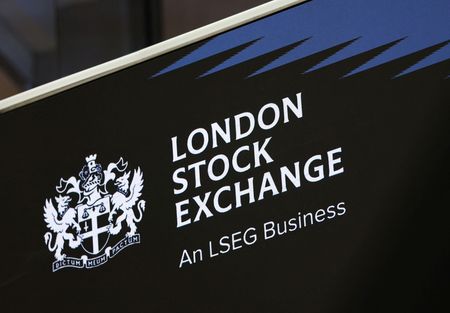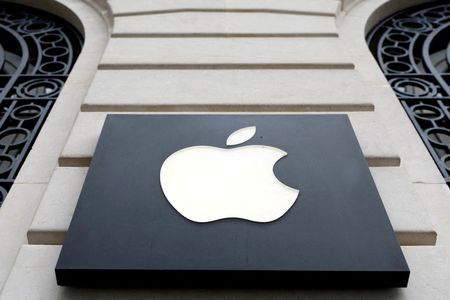By Bhanvi Satija and Ludwig Burger
FRANKFURT (Reuters) -Shares of Swiss drugmaker Roche fell on Thursday after sales of its new treatments for eye disease and haemophilia disappointed the market, even as its nine-month revenue broadly met expectations.
Although Roche hiked its full-year forecast for adjusted earnings and has stepped up efforts to break into the fast-growing obesity market, investors are concerned that it is relying too heavily on its older blockbuster drugs.
“This is lower quality growth that you normally wouldn’t want to see,” said Christoph Wirtz, portfolio manager at Rothschild & Co Wealth Management. Older cancer drug Rituxan and anti-inflammatory Actemra offset shortfalls from haemophilia injection Hemlibra and eye disease drug Vabysmo, overseas sales of which were squeezed by a weaker dollar.
“The drugs that have lost exclusivity are still kind of performing so well,” Wirtz said.
‘SCRATCHING THE SURFACE’ OF OBESITY DRUG MARKET
Roche raised its adjusted earnings growth forecast to high-single to low-double-digit, helped by cost controls and efforts to mitigate the short-term impact of U.S. tariffs, and maintained its mid-single-digit sales growth forecast.
Roche’s shares were down 2.8% at 1158 GMT.
The drugmaker is banking on the success of its newer treatments as well as heavy investments in experimental obesity drugs, advancing one candidate to a late-stage trial last month.
CEO Thomas Schinecker said on a media call that the weight loss market, dominated by Novo Nordisk and Eli Lilly, had huge room for growth.
“I don’t think that we are overestimating the market, we are only scratching the surface,” Schinecker said.
Group revenue rose 2% on a constant currency basis to 45.9 billion Swiss francs ($57.9 billion) in the first nine months of the year, just below analysts’ forecasts of 46.2-46.4 billion francs.
Pharmaceutical division sales for the third quarter came in at 11.57 billion Swiss francs ($14.59 billion), versus analysts’ expectations of 11.84 billion francs.
Third-quarter sales of Roche’s much-watched Vabysmo, to counter a common form of blindness in the elderly, came in at 996 million Swiss francs ($1.26 billion), missing analyst expectations for the second consecutive quarter.
ROCHE CEO: WE’RE IN A ‘PRETTY GOOD SPOT’ ON TARIFFS
As pharma companies scramble to contend with U.S. President Donald Trump’s tariffs, Schinecker said that Roche was well placed having invested in U.S. manufacturing and the ongoing tech transfer of certain products.
He added that the company had increased U.S. inventory to safeguard against any short-term impact.
Roche’s U.S. biotech unit Genentech plans to offer influenza antiviral pill Xofluza direct to consumers at a discounted cash price of $50 through partners Alto Pharmacy and Mark Cuban Cost Plus Drug Company.
Other drugmakers have taken similar steps under pressure from the Trump administration to lower prescription drug prices.
In an effort to lower drug costs for U.S. patients who pay far more than in other wealthy nations, Trump has also struck deals with Pfizer, and AstraZeneca to lower prices on Medicaid in exchange for tariff relief.
“I’m not going to comment at this stage on any potential agreement with the United States,” Schinecker said. “What I can say is that we are always in good exchange with the government.”
($1 = 0.7931 Swiss francs)
(Reporting by Ludwig Burger in Frankfurt and Bhanvi Satija in London, Editing by Mark Potter, Kirsten Donovan)










